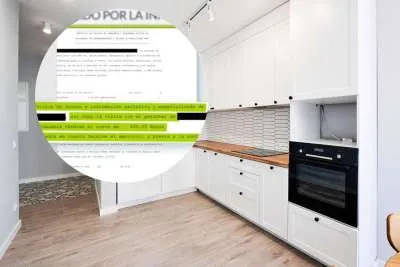When Should You Reject a Truck Accident Settlement Offer?
- 04-05-2025
- Business
- collaborative post
Experiencing a truck accident can be a life-altering event, leading to physical injuries, emotional distress, and financial burdens. As a consequence, insurance companies may present settlement offers to resolve claims quickly.
While the prospect of immediate compensation can be tempting, it's vital to assess whether accepting such an offer serves your best interests. Understanding when to reject a truck accident settlement offer is essential to ensure you receive fair and adequate compensation for your losses.
WHAT ARE TRUCK ACCIDENT SETTLEMENTS
A settlement is a legal agreement between the injured party and the at-fault party’s insurance company to resolve a claim without going to court. It provides compensation for the losses suffered due to the accident, allowing both parties to avoid the uncertainty of a trial. However, settlements must be carefully reviewed to ensure they provide adequate financial relief.
While federal regulations like 49 CFR § 397.3 emphasise compliance and safe operation, particularly for hazardous materials, victims of negligence, including unsafe trucking practices, have the right to pursue full compensation for damages under broader legal principles
However, initial offers from insurance companies often fall short of covering the full extent of these damages. Insurers prioritise minimising payouts, which can leave victims with long-term financial burdens. Consulting a truck accident attorney from a law firm like rosengardlawgroup.com can help ensure the settlement accounts for all present and future losses.
WHAT ARE THE COMMON REASONS TO REJECT A SETTLEMENT OFFER
Rejecting a settlement offer is necessary when the compensation fails to cover all damages or does not account for long-term losses. Ensuring a fair settlement requires careful evaluation and legal guidance. Here are some of the reasons that will help you to know why rejecting the settlement offer is best for you:
Insufficient Compensation
Insurance companies often propose initial settlement offers that are lower than what victims may be entitled to, leaving them with unpaid expenses. These offers might not fully cover medical expenses, including current and future medical bills, lost wages due to time off work, or property damage costs for repairing or replacing a vehicle.
Additionally, they may fail to compensate for pain and suffering caused by physical injuries and emotional distress. Accepting an inadequate offer can leave victims financially responsible for expenses that should be covered by the at-fault party’s insurance. It’s essential to evaluate whether the settlement amount truly reflects the extent of the losses suffered.
Disputes Over Liability
If there is disagreement about who is at fault for the accident, the insurance company may offer a reduced settlement or deny the claim altogether. In such cases, accepting a settlement can undermine your ability to pursue full compensation. Gathering additional evidence, such as witness statements or accident reports, can strengthen your position and justify rejecting an unfair offer.
Unaccounted Future Medical Expenses
Some injuries require ongoing medical treatment and rehabilitation, or result in long-term disability. Initial settlement offers may not account for these future expenses, potentially leaving you without the necessary funds for continued care. It's vital to consider the long-term implications of your injuries before accepting a settlement.
Pressure to Settle Quickly
Insurance adjusters may pressure you to accept a quick settlement, emphasising immediate financial relief. However, quick settlements often benefit the insurer more than the victim. Taking the time to fully assess your injuries and consult with professionals ensures that you make an informed decision.

What Steps to Take After Rejecting a Settlement Offer
Declining a settlement offer is often the first step toward securing fair compensation, but it also raises the question: What should you do next? Whether negotiations continue or legal action becomes necessary, having a clear plan can make all the difference in protecting your rights. Consider these steps for further processing:
Consult with a Truck Accident Attorney
Engaging a legal professional experienced in truck accident cases can provide invaluable guidance, especially when you are hurt on the premises of NJ. An attorney who is familiar with the local laws, like Adam Rosengard from Rosengard Law Group, can evaluate the fairness of the settlement offer, negotiate with the insurance company on your behalf, and represent you in court if necessary.
Gather Comprehensive Evidence
Building a strong case requires thorough documentation, including medical records, accident reports, witness statements, and expert testimonies. This evidence supports your claim and can demonstrate the extent of your damages, strengthening your negotiating position.
Be Prepared for Negotiations or Litigation
Rejecting a settlement offer often leads to further negotiations. If the insurance company remains unwilling to offer fair compensation, filing a lawsuit may be necessary. Legal proceedings can be complex, but they provide an opportunity to recover the full amount you deserve.
FINAL THOUGHTS
Accepting a low settlement can leave you struggling with unpaid medical bills, lost income, and long-term financial burdens. Insurance companies prioritise quick payouts, not in your best interests.
Rejecting an unfair offer is not just a choice, it’s a step toward protecting your future. With the right legal guidance and a firm stance, you can fight for the compensation you truly deserve. Don't settle for less when your recovery and financial security are on the line.
Other articles that may interest you...
Trending
Most Read Articles
Featured Videos
TributoFest: Michael Buble promo 14.02.2026
- 30-01-2026
TEAs 2025 Highlights
- 17-11-2025


























































